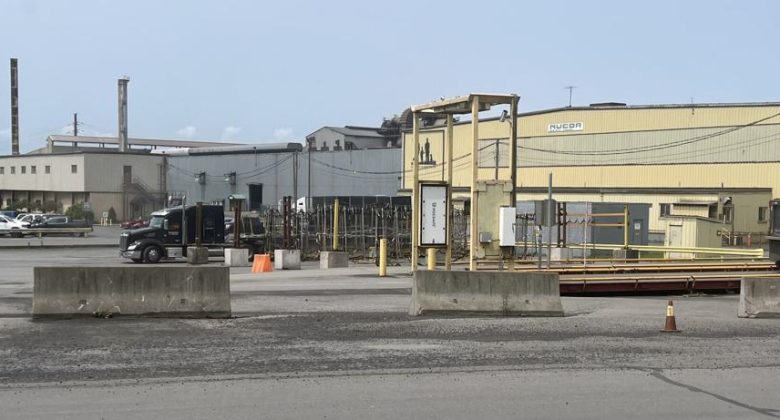The Cayuga Economic Development Agency is often asked why we concentrate our efforts in Auburn. It’s simple: We go where the businesses are, and most of Cayuga County’s commercial and industrial activity happens in Auburn. In fact, 60% of commercial and 48% of industrial properties are in Auburn.
But why is that? What caused all these companies to locate in Auburn instead of Sempronius, Scipio or Ira? Why not Weedsport or Port Byron, situated along the Erie Canal? To explore this, we consulted with Ruth Bradley, our county historian.
“Auburn’s original drivers of development were speculation around Revolutionary War tracts, the prison, and ultimately the geography of the Owasco River — it’s about waterpower,” Bradley said.
Before we had steam power, and later electricity, the city’s manufacturing industry depended on reliable waterpower that was provided by dams on the Owasco River. Water wheels powered machinery using belts and gears. Some of this legacy equipment can be seen at the New Hope Mills Café, known for serving delicious pancakes.
It’s been well over 100 years since waterpower was displaced by steam, and later electric power, so why is commercial and industrial activity still concentrated in Auburn? Businesses need density; they thrive on it. Density enables economical access to infrastructure, transportation, labor and material. These factors of production have a very real impact on the ability of companies to make money.
To illustrate this, let’s compare the town of Brutus and the village of Weedsport to the town of Mentz and the village of Port Byron, which are only three miles apart. Both towns encompass the Erie Canal, now the New York State Canal System, and are roughly the same size. However, the total land value in Brutus/Weedsport is $295 million, while in Mentz/Port Byron it’s only $138 million. Furthermore, Brutus and Weedsport boast more than twice as much commercial and industrial land in terms of market value. The difference is that Weedsport has the county’s only Thruway exit.
In recent decades, commercial and industrial activity in Sennett and Aurelius has begun to grow significantly. Firms leveraged proximity to Auburn’s pool of services and labor, affordable land outside of the city, and the county’s agricultural production. Cayuga Milk Ingredients, Denkavit and DuMond Agriculture have become major manufacturers in the “value-added agriculture” sector — they take raw agricultural ingredients (soybeans and milk) and turn them into more valuable goods. Today, Sennett and Aurelius respectively contain 14% and 23% of the county’s industrial zoned land — we note that DuMond is located in Fleming. Combined with Auburn, this central belt contains 85% of the county’s industrial land.
While manufacturing remains a driving force in Cayuga County’s economy, significant deindustrialization has occurred in Auburn since the 1970s due largely to factors outside of local control. Post-World War II reconstruction of industrial centers in Asia and Europe, coupled with free trade agreements and the recognition of China in 1979, led to reduced demand for exports, offshoring and a shift toward high-value-added services — software, telecom, intellectual property and financial services — in the United States. Lower regulatory and labor costs in the southern states also contributed to the relocation of manufacturing.
Despite having commercially zoned land in every municipality in the county, more than 82% of that land lies within Auburn, Aurelius, Sennett and Brutus/Weedsport. Outside of our commercial centers, the towns are generally agricultural communities focused on farming. Agriculture is a major component of the economy and our largest land user, but it isn’t the largest economic driver. The 2017 USDA Census of Agriculture notes that 50.8% of all land in Cayuga County is used for agriculture (total land area: 442,880 acres; land in farms: 225,204 acres). In 2017, the market value of products sold by the county’s 842 farms was roughly $287 million. While significant, the total county GDP in 2017 was more than $2.8 billion.
In 2023, we conducted tours in Sterling/Fair Haven, Moravia, Union Springs, Aurora and the village of Cayuga, engaging with 20-plus businesses during these tours. CEDA is committed to reaching every municipality in Cayuga County. If your business hasn’t engaged with us, we encourage you to reach out and discover how CEDA can support your growth. As always, our services are free and confidential.





